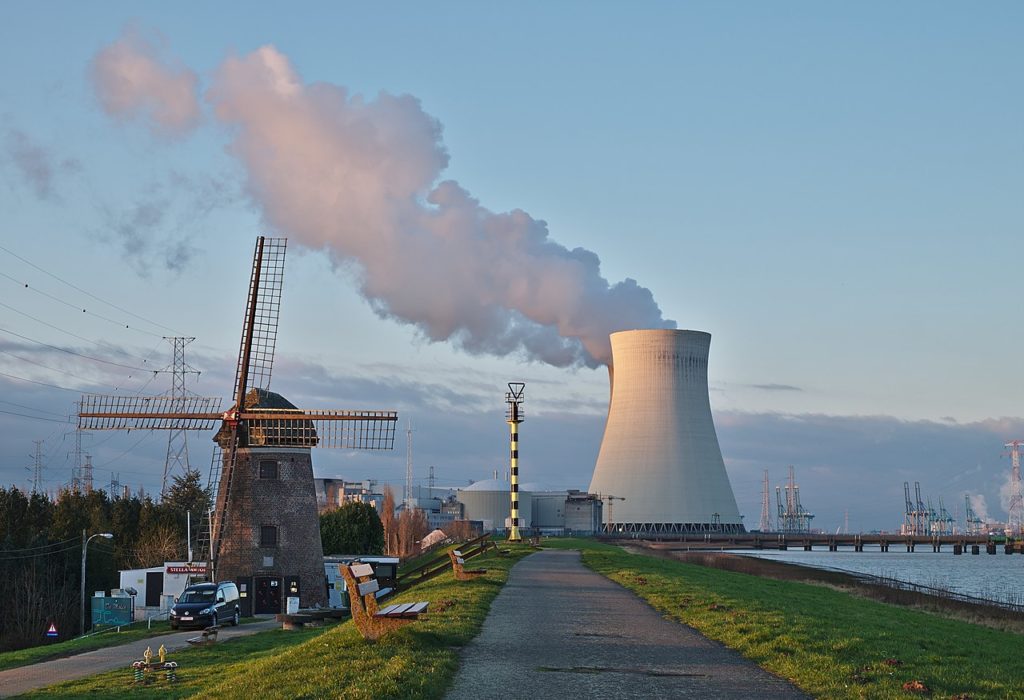The European Commission ignited a weird New Year's firecracker when the second so-called 'delegated act' in the EU's taxonomy for sustainable investment came into public circulation.
Weird because the timing seemed strange. Otherwise not - even though it caused a storm of greenwashed stir of the best panic-populist quality. Why would the EU propose that nuclear power and natural gas should be categorized as green energy sources? “It’s a scandal!” the critics are shouting.
But listen. The EU's taxonomy is born with the purpose of getting more momentum in private investment in the green transition. Taxes alone cannot do the job. Pension funds, insurance companies and investment companies must be in the game. The green transition is - as the name suggests - a transition. Something that takes time. Preferably as short as possible. And this will only be possible if we invest much more heavily in the technologies and types of energy that are part of the transition, until the Paris Agreement has been fulfilled, the EU's 2050 goal of climate neutrality has been reached, and the world is full of clean and green energy types that are affordable for people all over Europe and small and medium-sized businesses.
High goals and ambitions alone do not make the world green. That is reached by the actions of people - politicians, organizations, experts and institutions - who are not afraid to get to work, and who can separate emotions from facts, so that the debate itself does not become as black as the energy, we are trying to minimize.
That is why I welcome the second delegated act. I hope that it will soon be followed by a third, because we need a delegated act that is able to assess and activate energy technologies that are truly new and radically innovative. Neither the first nor the second delegated act considers this, and that problem is far more serious than the fact that investments in nuclear energy and natural gas are now gaining momentum.
The second act is good because nuclear energy is crucial if we want to become CO2-neutral with a weather-independent and stable energy supply in the enormous quantities we need now and in the future, and because natural gas is the transition technology that is better than coal-fired power plants around Europe as well as imports of Russian gas or oil from the unstable Middle Eastern states.
Add to this that the delegated act sets special requirements for natural gas and nuclear power in relation to obtaining categorization as a “transitional” or “green” investment. If these requirements are met, it is easier to obtain private investment and financing from EU funds. Otherwise not.
Investments in natural gas plants are only considered green if they meet certain requirements. The plants must not produce more than 270g CO2 per kilowatt-hour, they must replace a fossil fuel power plant that emits more CO2, and a permission can only be granted until the end of 2030. The plants themselves must also live up to a number of additional technical requirements to be considered as green “transition technologies”.
Likewise, investing in nuclear power can only get the EU's taxonomy approval as a sustainable investment if a project meets a wide range of safety requirements. Primarily, it must have a plan for the safe handling of the waste, including the financing. The project must also have received a building permit by 2045. In this way, the works in the taxonomy are considered a technology that in a transition must have a push to get up to the production capacity needed so that we can get rid of actual transition technologies.
So, stop lynching the second delegated act of the sustainability taxonomy. Unless these critics are very honest about the natural consequences of neglecting nuclear and natural gas; namely later CO2 neutrality with the consequence of more extreme climate and energy shortages that makes energy much more expensive. Both effects that will ultimately destroy the Europe and the world we know today and at best, send the best graduates of future generations away to continents that dare to roll up their sleeves and make more investment in the parts of the green transition that requires hard work.


